- Music
- 01 Dec 22
Bono: "This narrative has been out of control for some time..."

With the release of his new memoir – or we-moir as he says on the dust-jacket – Bono has opened up in a whole new way, writing with extraordinary power about his life, his loves, his art, his father Bob, Scott, his family, Ali, God... and the band they call U2.
Lost parcels.
Jumbled memories.
Moments of doubt.
A book. A big fucking book. Yellow is the colour. Bright yellow. Look how they shine for you. Like the stars on the front of Zooropa. She wore lemon. I think of home movies. I think of Iris.
Handwriting on the front and back. Author of his own destiny. Look! There’s 560 pages worth of author here! A very big book, hard of heft in hand. This’ll take time. Give it time.
A black and white pic of a serious, seriously freckled, young man on the front. And an opening chapter about a near-death experience that bursts from the page with the immediacy of a long shot of something very strong.
Mount Sinai hospital.
A heart operation. Hallucinations. Memories of a father dying. Patti Smith singing ‘People Have The Power’. The Songs of Innocence tour. ‘The Miracle (Of Joey Ramone)’. Leaving home to find home. It’s an intoxicating start.
A hundred questions already. By the time we get to the end there will be a thousand.
Here we go. Sprinting the marathon. Planes to catch. Time the enemy. Handwritten notes. Email works when you’re asleep. What is Barack Obama really like? Keep it simple. I went out for the papers. Told her I’d be back by noon. Now look where I am, Jimmy. It’s been a long road. But there’ll be more twists and turns up ahead. There always is.
In the meantime, Surrender is a blast. The boy can write.
Boy, can he write...
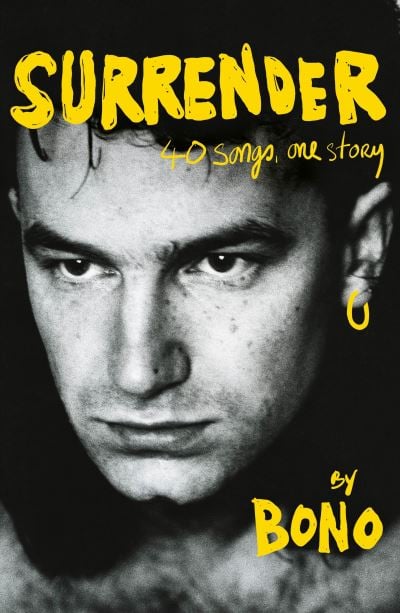
Someone said that you had been working on the book for a long time – how long is long?
I started jotting down notes in maybe 2014. Those two Innocence and Experience albums were the seeds, got me thinking more about the arc of my story, the story with Ali and the story with the band. The loss of innocence, the price of experience. For a while it was an exercise in memory and reflection, I wasn’t certain for some time it might become a thing.
It’s certainly a long way from the article you wrote for the Hot Press Yearbook, or the review you did of Thin Lizzy in the Hammersmith Odeon – do you remember coming into the office to put pen to paper then?
Have you paid me for that yet? I remember the various Hot Press offices, but an even more vivid memory is picking up the tickets you left for me in Thin Lizzy’s management, or was it PR, in London. I’d never seen such a swanky place, it was so very London and cool. Like Austin Powers goes back to the Seventies cool. I felt the opposite as I entered this world, so self-conscious… But a very, very cool and striking woman came to my rescue. It was Caroline Crowthers, Phil Lynott’s girlfriend who would become his wife and the mother of his two daughters Sarah and Cathleen, who later lived with Philo up the road from Ali and myself in Howth.
Had some of the sections, or set-pieces, been written at the time or in advance, on the basis that you knew you’d be doing a book like this at some stage?
No, nothing. I wish I’d kept a diary, that would have saved me a lot of time! I’ve scribbled over the years on a lot of bits of paper, but always for songs. This is the first time I’ve written in full sentences about my life.
You showed parts of the book to other people – how much resistance was there to what was being said?
As I was going along, writing late night on planes or early morning in hotel rooms on tour, I ran sections by people to see how they’d land. Surprisingly to me there was very little resistance, and unsurprisingly lots of illumination. Someone would usually remind me of another scene in an act I’d sketched, one I’d forgotten. Paul and Kathy McGuinness would send me detailed notes, not just colouring in the memories but, awkwardly, suggesting where I might have faulty memories. Adam... Brian Eno… there were a few. My brother Norman came into his own as a fact checker on the early years. I’d get these emails saying “p. 163: Family car was wine-red, not red.” He really took me back there.
What was the most difficult moment in all of that?
Realising that what grown up authors say is true — that when you’ve done your first draft you’re only a third of the way through.
Were there times when you were forced to doubt the accuracy of your own memories?
Paul McGuinness was adamant that the first time he met Adam and Edge’s parents he gave them a pineapple. I swear it was a honeycomb, and Edge concurs. We’d never seen such a thing before. I don’t think a 40-year relationship is worth scuppering over an exotic fruit so I put both in. It was a honeycomb though.
Was there material that ended up on the cutting room floor because other people prevailed on you or just because it had to be chopped down?
I admit to the first draft having a few more words than the final... I loved the writing part, but the editing was hard. Those editors have sharp scissors. I didn’t mind losing the material, but I really minded losing some of the people in the material that was cut, characters through my life who have been important to me or what I was involved in.
Organisation of the material must have been a major challenge – how much wrestling was there?
Deciding to write forty short stories, forty stories shaped by forty songs, was the breakthrough. Each song I chose for a chapter title came with a kind of inbuilt direction on its own narrative, on ideas I might pick up: the discovery of a family secret - like you have a brother you never knew - or the role of the performer, the showman, or how losing a parent breaks you or how having a child makes you or the temptations in political activism. Or how to love the woman you love. Obvious, really, but I noticed I’d been songwriting about all this forever…
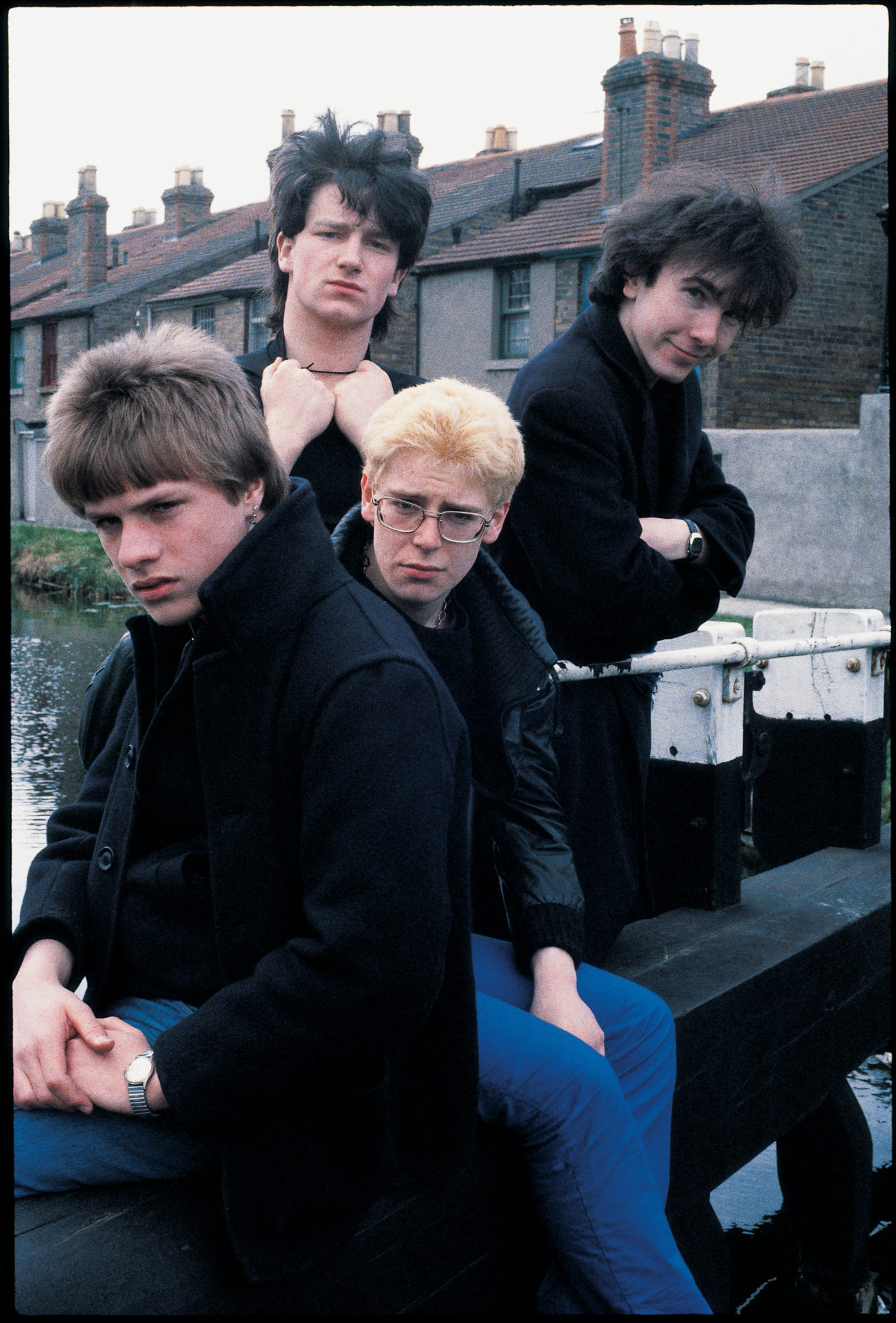
U2 by Paul Slattery
BEING A WRITER
Was there a key moment when you realised – I really am a writer…
I was nervous when I sent the first few chapters I’d written to Sonny Mehta, this legendary editor in New York. He sent me a very warm response and the line I will never forget was when he said “you can write”... that’s probably when I thought maybe I’m not a total imposter here, maybe this is more than an experiment, maybe this is going to be a book. So I kept hammering on the iPad. We finished our touring in December 2019 in India and we’d always planned a break… although not the one that was enforced on the entire planet. I used that extended period of isolation during COVID to get the first draft finished.
Can you describe what, for you, is the fundamental purpose of telling the story in this way?
The act of writing is an extended act of self-reflection and in its best – albeit rarest – moments I found it gave me some new understanding of myself. But if I’m being honest, I was writing it for U2 fans, friends, and for my family, that’s what drove me to the finish line. I wanted to explain to my children what I’d been doing which took me away so often, whether music or activism. They didn’t ask for an explanation but I wanted to give one.
Is it that it’s your chance to fully control the narrative?
This narrative has been out of control for some time.
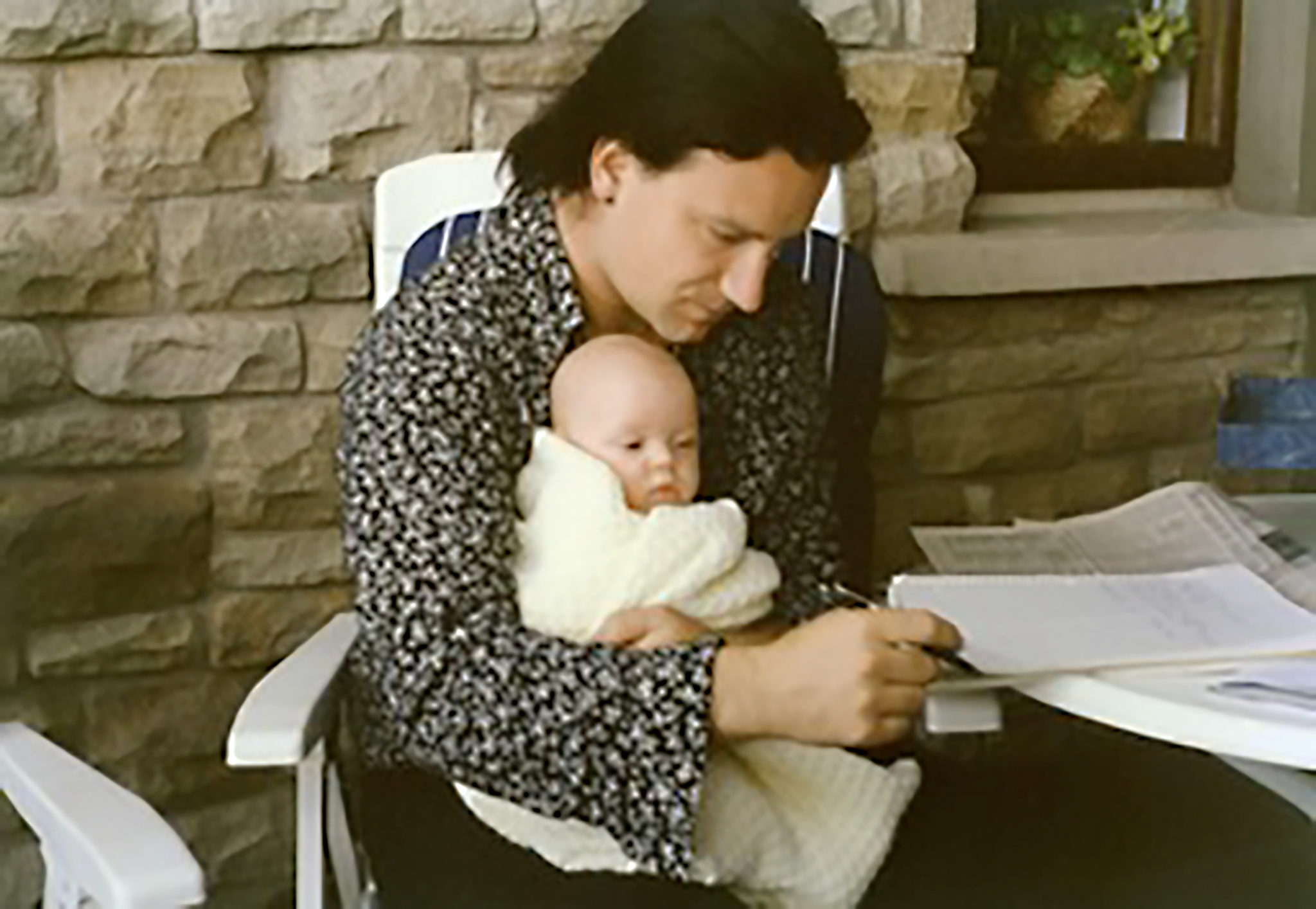
Bono and his daughter Jordan (Hewson Family Archive)
I know that it involves a whole heap of hard work, but were there moments when you really enjoyed writing it?
There were times when it was exasperating and frustrating, but so many more times when it was a joyful exercise. When it’s flowing out of you it’s a release, and I really looked forward to the early mornings when I had time to write. It gave me a bug. Doing the audio book was fucking brilliant. I loved it. Not the reading which took ages, but working with the producer Scott Sherratt to put in the musical elements and transform these 2-d pages into surround sound soundscapes. That was fun. Going back to the recording studio is always a thrill. I wanted to do the drawings to lift the pages a bit. When you’re used to recording songs, the lyrics are just one part of it, it was an adjustment to rely on words alone to tell stories. The drawings felt like a bit of a drum roll for each chapter.
There’s a lot of great writing in the book. Is there a stand-out passage, for you – one that, above all, you feel you’d love everyone to read?
That’s like asking me to pick my favourite U2 song. It’s a long book, but I wrote it as forty short stories so readers can dip and out. People are busy.
Your handwriting hasn’t changed much!
In that people still can’t read it?
You mention in the book that you might have become a journalist – were there times, watching journalists in action over the years, when you thought: I’m glad I didn’t go down that horrible road!
Watching journalists who uncover facts and truth by putting themselves on the line, I only ever feel deep gratitude. (RED) had a limited edition scarf by Ed Ruscha titled “Science is truth found out”.
ALI
There’s a curious line about Ali – that your children gave you permission to write about them, and that Ali might sometime – is that a joke between the two of you? There must be a concern that it would become too intrusive!
Ali is a private person, I was nervous to show it to her. But she surprised me, as she always does. There was one paragraph she asked me to take out because it was too personal, and then she fixed my spelling. She was always going to be the first and last editor. It’s more than correcting my grammar and fact-checking my memories. Since we first met at Mount Temple Ali has always been my editor-in-chief.
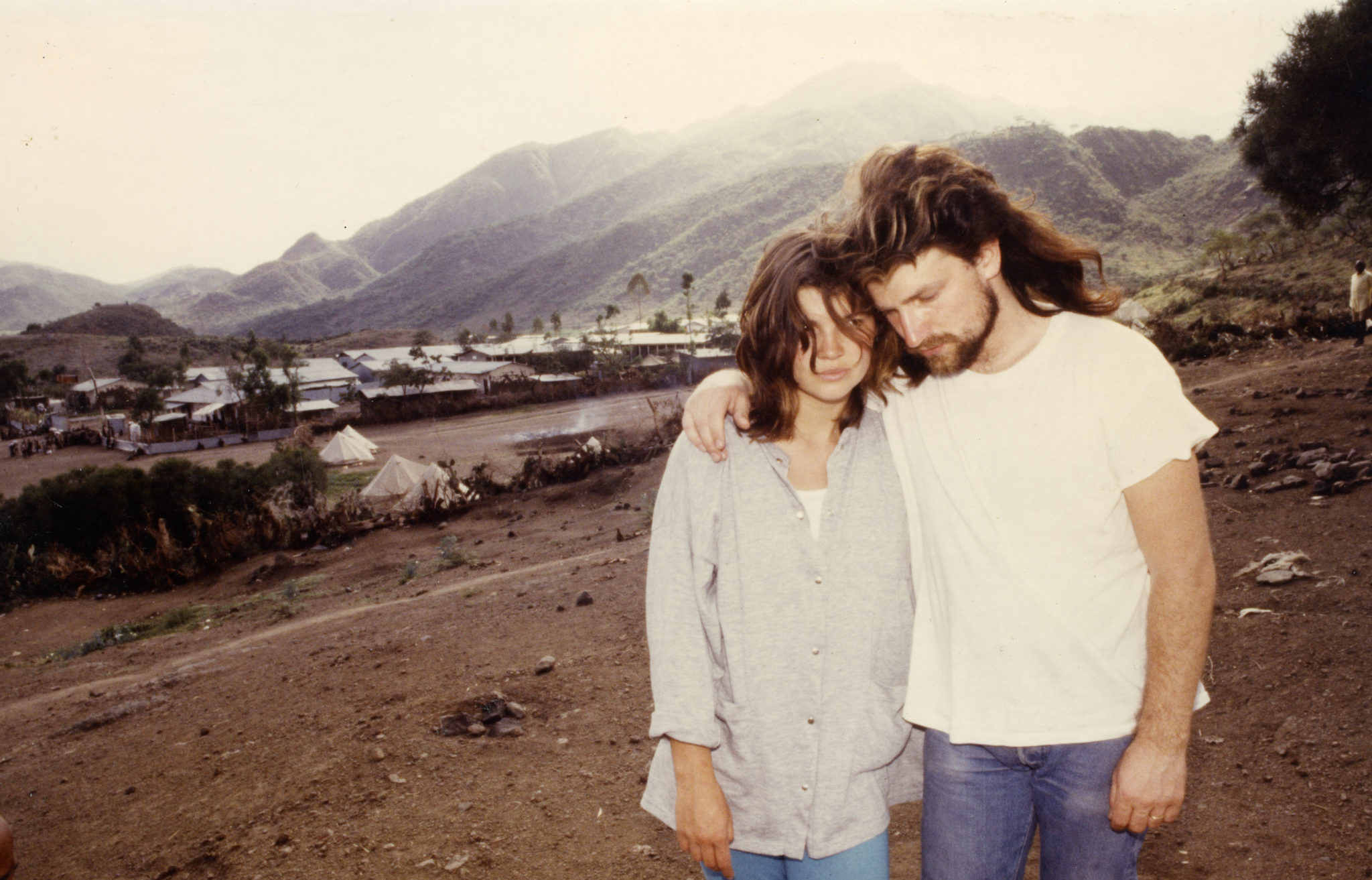
Ali and Bono (Hewson Family Archive)
ACTIVISM
Do you – still? – feel angry at the fact that your work on Drop the Debt and DATA was so frequently mischaracterised as a form of collusion?
I did want to write our account of the twists and turns of how such advocacy works and what lies behind the photo-ops. It’s a wild ride and I ended up in some uncomfortable places to be sure, but I’ve never been very good at being comfortable! I get a lot of the spotlight because of U2, but the work on debt and AIDS was a massive effort by people all over the world. I’m really proud of what was achieved, and proud that the band was up for putting our fame to work in this way. It did involve difficult and sometimes costly compromises along the way, but any costs to us are nothing compared to the impact of what we were a part of. The World Bank records that in the case of the Drop The Debt campaign, an extra 54 million children went to school in the poorest countries on the planet. $130 billion in unfair debts cancelled. That was a privilege to be a small but significant role. The honour of a lifetime.
A lot of people use a memoir or autobiography to settle old scores – was there a temptation to do that at all?
It was a honeycomb.
RELIGION
Religion is at the very heart of the book but it also reads like a celebration of doubt – is that fair?
It’s a celebration of not knowing, but knowing. After 40 years married, Ali is a still mystery to me but I know whatever happens, if one of us gets lost the other will find us. My faith is like that.
You approvingly quote Nick Cave’s opening line in ‘Into My Arms’ – “I don’t believe in an interventionist God…” – do you? If the answer is yes, then how come he/she/they made such a mess of it ?
The way I choose to read Genesis, it was Adam who threw God out of the garden and blamed Eve. “Heaven on Earth, we need it now I’m sick of all of this hanging around…” Maybe we are just being born. After all, a billion years is a day in God’s eyes… maybe these are just growing pains. It’s us that are making the mess but how we love to blame the God we don’t believe in. Birth pains abound.
If not, or if it is in doubt, then the whole Christian myth – and indeed the Jewish and Islamic versions – are essentially a very poetic bunch of stories.
We are the stories we tell ourselves, we create myth.
I asked Van Morrison not so long ago is there a God – and he said “You can’t know that. Nobody knows that.” Is there a problem with religion, in that it insists “You can answer that – and there is”…?
Anyone who insists anything to anyone else is religion with a capital R. I’m more interested in what you insist to yourself and how that plays out in your daily life. I fail every day but I try every day too.
BOB / LOVE
In the end, what emerges most clearly is that ‘love is the higher law’ – is that the essential message of Surrender?
I think so, but it’s also an examination of love itself. We find common ground by reaching for higher ground. I should admit too to writing a book with a title I’m still trying to fully understand.
Do you feel completely at peace in relation to your relationship with your father, Bob, now?
I wish we’d been able to bring our defences down earlier, but we did manage to climb over them before he died. In the book I write about going to ask his forgiveness in a small chapel after he passed, a moment I feel changed my voice, as well as my attitude. It was after the fact when real peace broke out and that was a real gift to me.
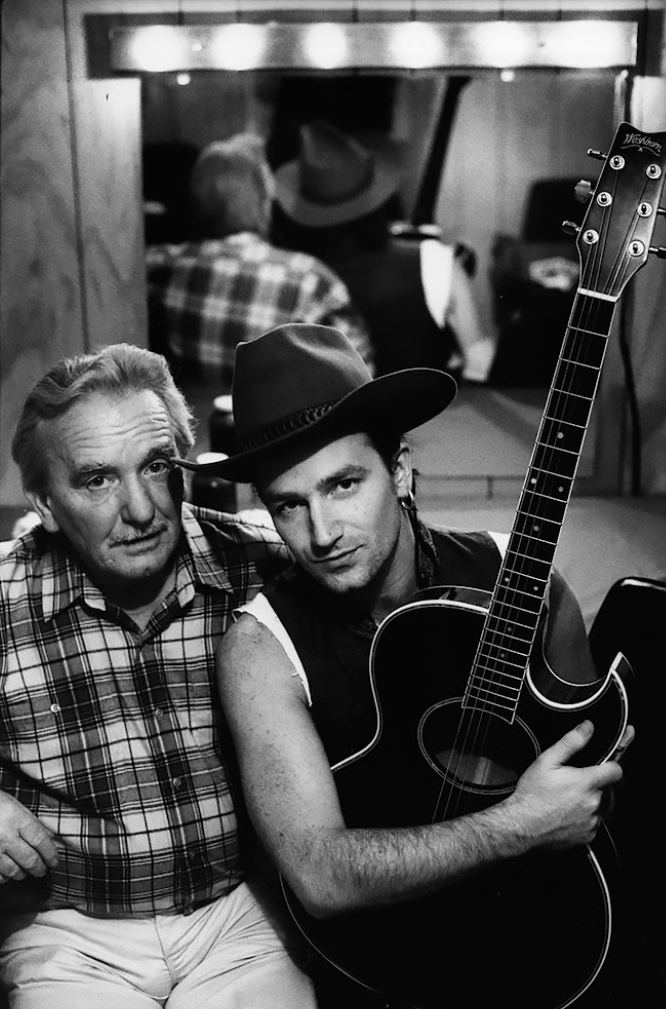
Bono and his dad Bob Hewson, by Anton Corbijn
Was it easy to embrace the news about your new brother, Scott?
Yes, it’s the strangest thing but I was not surprised to hear he was our brother. It made total sense to me, I’d always felt very close to him.
Print is horribly final: was there anything you were kicking yourself that you didn’t say in the book, once the final sign-off happened?
I have ended up on a lot of long calls to explain why my editor kept a great friend on the cutting room.
RELATED

- Music
- 25 Dec 25
WATCH: Bono, Imelda May & Glen Hansard lead Dublin Busk

- Music
- 29 Oct 25
Inhaler release new single 'Hole In The Ground'
RELATED

- Music
- 10 Oct 25
The Edge announced as co-founder of soil regeneration company

- Music
- 30 Sep 25
On this day in 1982: Bruce Springsteen released Nebraska

- Music
- 19 Sep 25





